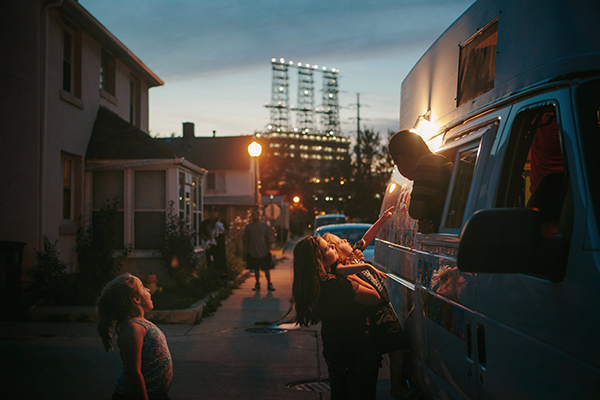
Freelance photographer Alyssa Schukar teaches at Columbia College in Chicago. For the past two years, she has documented environmental problems caused by big industry throughout the Rust Belt.
The project that I’m working on is a look at life in East Chicago, Indiana, which is zoned 80 percent heavy industrial. It’s about strong, tight-knit communities that live with all this pollution and industry surrounding them.
The Marktown neighborhood was created to service the steel mills. And then as the steel industry modernized and shifted overseas, those jobs disappeared. The work moved toward the oil refinery; BP’s East Chicago refinery is the largest inland refinery in North America. But no one who lives in Marktown actually works there. The community is well within the disaster blast zone; a couple of years ago, some misfiring at the plant caused the whole area to be covered in plumes of smoke. There’s a health risk for them but also a kind of comfort with the familiarity of industry.
What I’ve seen with Marktown is a loss of identity—these communities are being broken apart. In the past two years, BP has probably bought and demolished 50 homes. Most people who live in East Chicago have been there their whole lives; the people in Marktown are third- or fourth-generation families. The idea of being pushed out by industry is hard for them to understand.
Just before capturing this scene, I heard the ice cream truck music, so I ran outside. Dusk is always my favorite time of the day to photograph; the light is beautiful and matches the sky in intensity. I was looking for a way to introduce the stacks from the refinery in the background without being obvious about it. It was a sweet, all-American scene, especially because the ice cream truck is such a summer icon, a symbol of family, community, and happiness.

